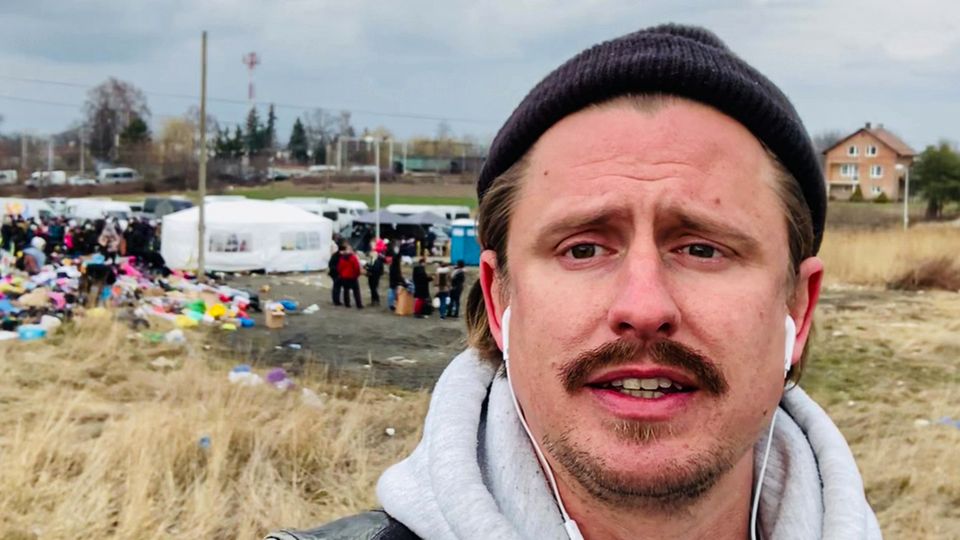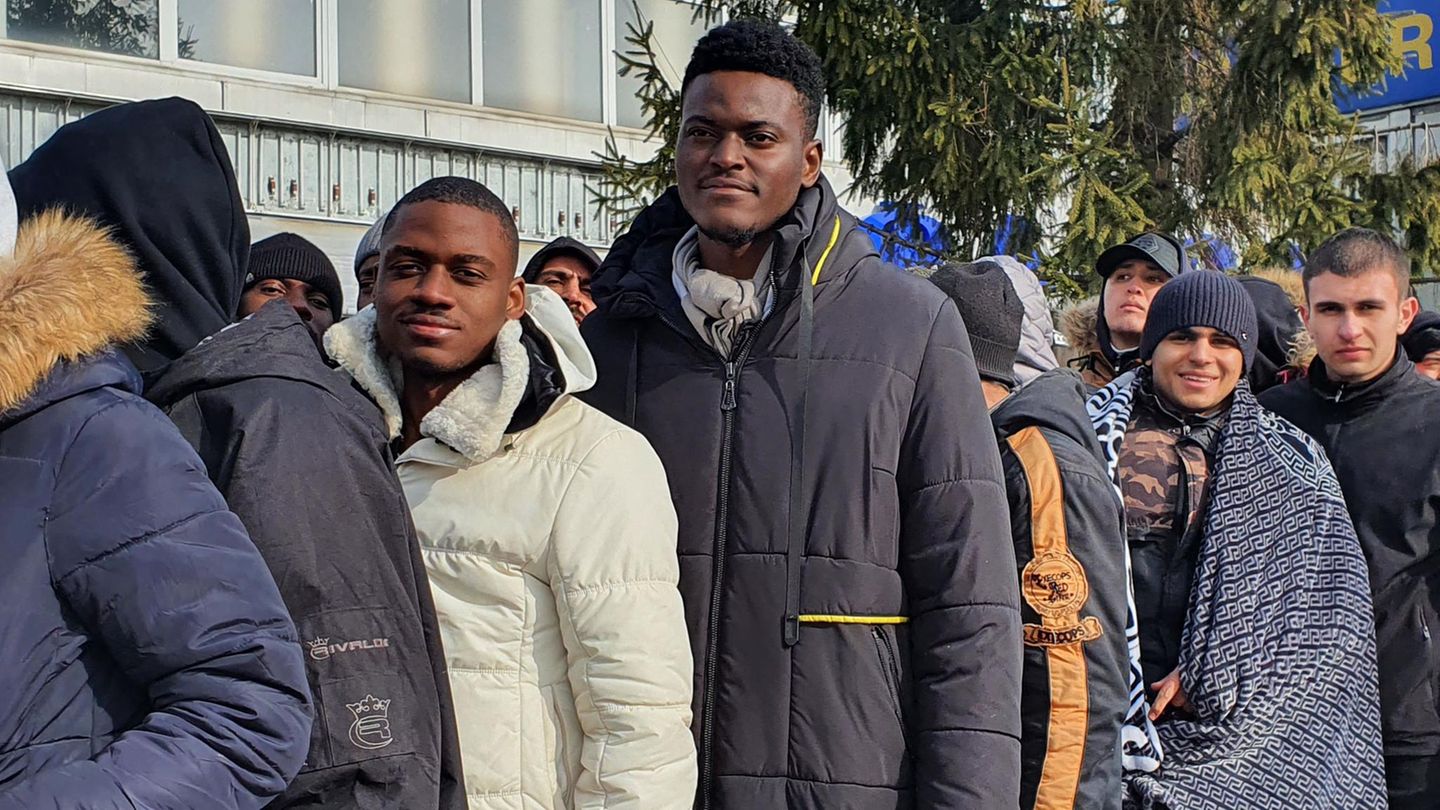According to their own statements, black people find it much more difficult to cross the border from Ukraine to Poland. But both countries deny the accusation of racism.
Jean-Jacques Kabeya is angry: like other foreign students in Ukraine, the border officials did not let him leave the country. “They told me: ‘You’re going to fight with us, you’re not going away – especially not as a black person,'” says the 30-year-old from the Democratic Republic of the Congo. Kabeya studied pharmacy in Kharkiv in the east of the country. When the Russian attacks began, he fled west and reached the Schegyni checkpoint on the border with Poland on Sunday evening.
But the Ukrainian soldiers and security officials turned him back. Other students from Africa, Asia and the Middle East also report to the AFP news agency about racist discrimination while fleeing.
36 hours of waiting in vain
Kabeya says he waited 36 hours in vain to be allowed through to Poland. Eventually he returned to the Lviv train station, 70 kilometers away, where he joined a group of compatriots. “It’s a disaster,” says the student. He still hasn’t found a way out of the war.
Ukraine is a popular study abroad destination. About 16,000 African students live there, according to the South African Embassy.
Hundreds wait and wait at the border
Several hundred people from Pakistan, India, Algeria, the Democratic Republic of Congo, Cameroon, Ghana and Algeria were still standing at the Schegyni border crossing on Tuesday, desperately waiting in a queue to be allowed to pass. According to some, it was already the fourth night outdoors at temperatures of up to minus ten degrees.
The second queue across the street is reserved for Ukrainians – mainly women and children, as most of the men have to stay behind to fight. This snake moves faster.
“Because we’re foreigners, they treat us like dogs,” says Mesum Ahmed, a 23-year-old computer science student from Pakistan. “We slept here on the sidewalk, but the Ukrainians don’t give a damn,” he says indignantly.
“We are black, that’s it”
He wears a travel pillow around his neck. “It’s easy to see what makes us different,” agrees a young Nigerian with Ahmed. “We are black, that’s it.” The students get their only support from the volunteers, who provide them with hot drinks and sandwiches.
A group of about 30 students from Cameroon lived in Kirovograd in the center of the country until a few days ago. They say they never experienced racism there. But that changed when the war began, says Bryan Famini.
“We were systematically kept away from our seats at the stations and on the trains,” says the 22-year-old business student. “Some Ukrainians even made fun of us from their cars when they saw us running,” said Ghislain Weledji, who is the same age. “I’m disappointed in this country,” he added. “I will not come back.”
Poland and Ukraine deny racism allegations
The Ukrainian border guard denies any discrimination. “No one was prevented from leaving Ukraine,” it said in a statement responding to AFP’s request. There have been no complaints. Everyone who flees Ukraine is welcome, regardless of nationality, according to the Polish side.

The African Union has expressed concern over what appears to be “shockingly racist” treatment of foreign students at Ukraine’s borders. Some countries said some of their nationals have since been able to leave Ukraine. Governments from South Africa to the Democratic Republic of the Congo are scrambling to help their citizens. Some sent diplomats to the Ukrainian border to help students exit the country.
Source: Stern
David William is a talented author who has made a name for himself in the world of writing. He is a professional author who writes on a wide range of topics, from general interest to opinion news. David is currently working as a writer at 24 hours worlds where he brings his unique perspective and in-depth research to his articles, making them both informative and engaging.




